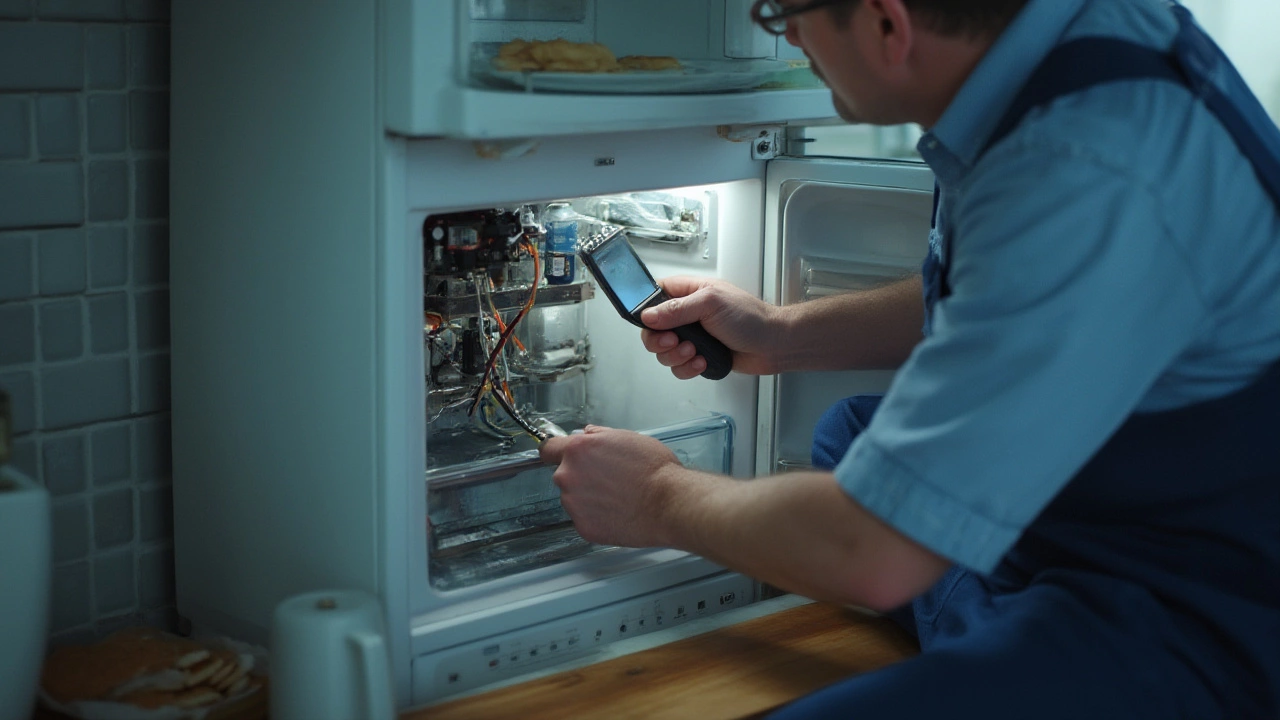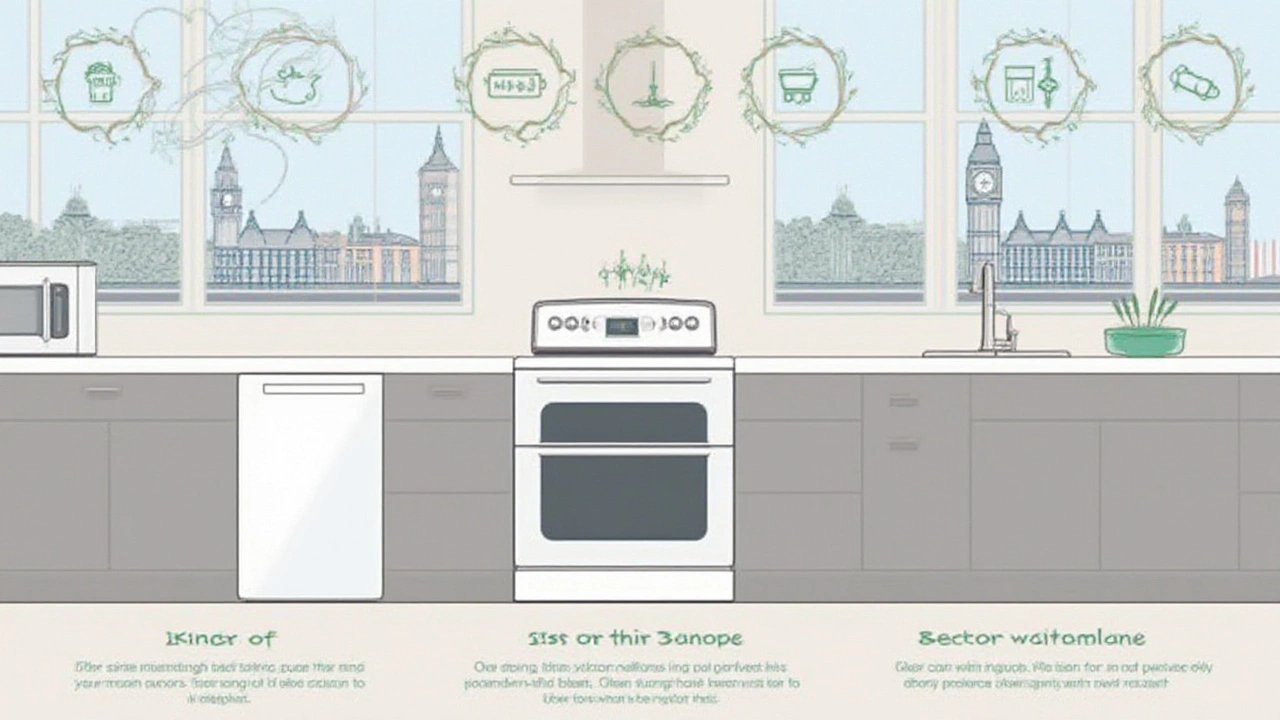Imagine waking up one morning and your fridge is warmer than your living room. Or you're prepping a meal and the oven just flashes an error instead of heating up. Appliances have a habit of going haywire precisely when you need them most. Most people barely give them a second thought—until they're stuck Googling "why is my washing machine leaking all over the laundry room?". The uncomfortable truth is, skipping routine servicing turns your home into a ticking time bomb of unexpected breakdowns, wasted food, and costly repairs. Here's the thing nobody wants to hear: appliances aren't set-and-forget gadgets. They're more like that old car you have to baby if you want to keep it from conking out on the motorway.
Why Appliances Need Regular Servicing
Appliances run marathon races every day, not sprints. Your washing machine could see over 5,000 cycles in a decade, and your fridge works every hour of every day, no rest in sight. This relentless use means parts inevitably wear out—door seals get loose, fans clog up with dust, filters collect lint and grime, motors chug along until bearings give out. It’s not always obvious, but wear and tear is unavoidable. If you read the fine print in most appliance warranties, nearly all of them quietly recommend annual servicing. There's a reason: these checks catch problems early, before broken parts snowball into catastrophic (and expensive) disasters.
Let’s take the humble tumble dryer. Lint builds up inside the vent system over months, sometimes getting so bad that in Britain, fire brigades say faulty dryers are behind hundreds of house fires every year. A simple service clears out this fire hazard. Or look at a dishwasher: tiny pieces of food and soap scum can gum up the drain, pump, or spray arms. A regular service spots these blockages before they ruin your Sunday roast dishes. Even new appliances aren’t immune. Just search up "brand-new fridge not cooling" on any forum. Often, poor installation or a loose connection at the start causes chaos down the line, all of which could have been fixed by a pro’s once-over.
Servicing is about more than just breakdowns and saving money. It keeps appliances running efficiently, slashing your energy bills. For example, when a fridge’s condenser coils get dusty, it runs hotter and guzzles more electricity, raising your monthly bill. A pro cleaning those coils during service can save you a neat sum every year. The same goes for heating appliances—a clogged boiler or a blocked oven vent means more energy to do less work. It’s no wonder the Energy Saving Trust always throws in a tip about "regular maintenance" in their energy efficiency checklists.
But how often is "regular"? For most busy British households, the sweet spot is once a year for major appliances like fridges, washers, and boilers. High-use appliances like ovens or tumble dryers might need twice-yearly attention, especially if you’ve got a big family or pets shedding hair like confetti. Some new smart appliances will even nudge you with service reminders, though it’s easy to ignore those beeps until something goes wrong.
Another overlooked point: regular servicing keeps your warranty valid. Miss a scheduled check and some manufacturers can wriggle out of repairing your appliance if it breaks. So, it’s literally peace of mind you can bank.

The Real Costs of Neglecting Appliance Maintenance
Let’s be brutally honest—out of sight really is out of mind. When an appliance is working, it’s all too easy to push servicing down the to-do list. But the financial pain comes fast and hard when things go south. On average, repairing a fridge that’s stopped cooling can run you £150–£400, sometimes even more if it needs a special part or a rush job. And that's if the repair is even possible. For some breakdowns, you’re looking at replacing the whole thing—a cost that often sneaks above £1,000 for high-end models.
Given that, paying for a yearly service, which is usually in the £60–£120 range, starts to look like a bargain. Consider it insurance—not just for your appliance, but for your sanity. If you play the odds, skipping servicing might seem cost-effective until you’re faced with a kitchen full of spoiled groceries or the stress of eating takeaways for a week because the oven's out. The indirect costs—time spent calling engineers, rearranging your family’s meals, or cleaning up mini-floods—add up fast. And don’t forget wasted energy. A poorly maintained dryer can suck up to 30% more energy than a serviced one. Multiply that over months and you're burning money.
Besides the wallet damage, there’s the bigger picture. Malfunctioning appliances are less safe. Dishwashers with clogged filters can develop leaks (hello, warped kitchen floors), and overloaded outlets from faulty kettles or microwaves can trip breakers or even spark fires. And don’t overlook hygiene: a musty washing machine or a fridge with dodgy seals becomes a breeding ground for bacteria and mould. In 2022, a study by Which? found that 1 in 3 Britons had dealt with a fridge failure in the last 3 years—and a lot of those failures could have been caught early by simple annual checks.
So, what usually goes wrong? Fridges often suffer from blocked drain holes or damaged door seals. Ovens get buildup on heating elements or blocked vents. Washing machines may develop clogged filters or leaking hoses. If you don’t catch early warnings, these small hiccups quickly spiral into major issues. And it's easy to overlook subtle signs: a fridge that's "just a bit" warmer, a noisy dryer drum, longer wash cycles. These are all your appliances quietly screaming for help.
One overlooked fact is that modern appliances are packed with electronics. Circuit boards are sensitive—surges, dust, moisture, all quietly degrade components. A standard service includes checking and cleaning these, nipping hidden problems early. If you’re tempted to go DIY, just know that poking around inside your boiler or oven voids most warranties and can create hazards. Qualified engineers not only know what to look for; they have far better tools. Thermal imaging cameras, circuit testers, pressure gauges—these aren't items you’ll find in your average toolbox.
Skipping regular servicing can literally take years off your appliances’ lives. Most dishwashers, for example, are built to last 8–10 years—if cared for. But Which? research in 2023 showed that neglected machines are likely to give up after just 4 or 5. That’s like throwing away half your investment while still paying full price for the privilege.

Tips for Easy Appliance Maintenance at Home
Not everything needs a professional. There’s plenty you can do to stretch the life of your gear and keep things humming along between pro checkups. Here’s how to save yourself a world of hassle.
- Appliance servicing starts with a basic monthly wipe-down. Dust and clean around vents and intake grilles to keep air flowing—especially on fridges and dryers.
- Replace or clean filters regularly. Vacuum cleaner filters, cooker hood grease traps, tumble dryer lint screens—all need attention. Set a calendar reminder or tie it to another regular chore so it doesn't slip through the cracks.
- For washing machines, run a hot cycle with vinegar or a commercial drum cleaner every couple of months. This banishes mildew and stops odours. Check the detergent drawer and the filter at the base for trapped coins or debris.
- Never overload machines. It might seem like a time-saver, but it puts extra strain on motors, bearings, and seals, causing them to wear out much faster. That shrieking sound your filled-to-the-brim washer makes isn’t normal, it’s a warning.
- Fridges and freezers need love too—defrost them if ice is more than a few centimetres thick, and check the door seals by closing them on a banknote to see if it holds in place. If it slips out, a new gasket is in order.
- Keep an eye (and ear) out for odd noises, vibrations, or changes in performance. These usually mean something’s off: a fan hitting dust, a pump struggling, a motor overheating.
- Before using ovens or hobs, take a minute to check for any scorch marks, persistent smells, or slow heating. These can signal electrical issues poised to get worse. Cleaning up spills right away stops grime from welding itself to heating elements and makes pro cleaning less painful down the line.
- Know your limits. If the appliance has exposed wire, gas smell, leaks, or electrical burning smell—shut it down, unplug, and call in a certified engineer. No YouTube video is worth the risk.
- Keep appliance manuals and warranty details in an easy-to-find spot. Many breakdowns are covered, as long as you haven’t ignored scheduled servicing. It’s a lifesaver when something goes wrong and you need a repair fast.
The smartest homes aren’t packed with the latest gadgets—they’re run by people who pay attention to the stuff they already own. The best tip? Treat your appliances like an investment, not an afterthought. That means giving them a bit of regular TLC, calling in pros when needed, and not waiting for a total meltdown. By doing a little now, you’ll avoid spending a fortune (and a lot of frustration) down the road.

I am an expert in the services industry with a focus on appliance repair. My passion lies in understanding how things work and educating others in simple, engaging ways. This enthusiasm fuels my writing, where I delve into topics around appliance maintenance and troubleshooting. I aim to make these subjects clear and accessible to all readers.